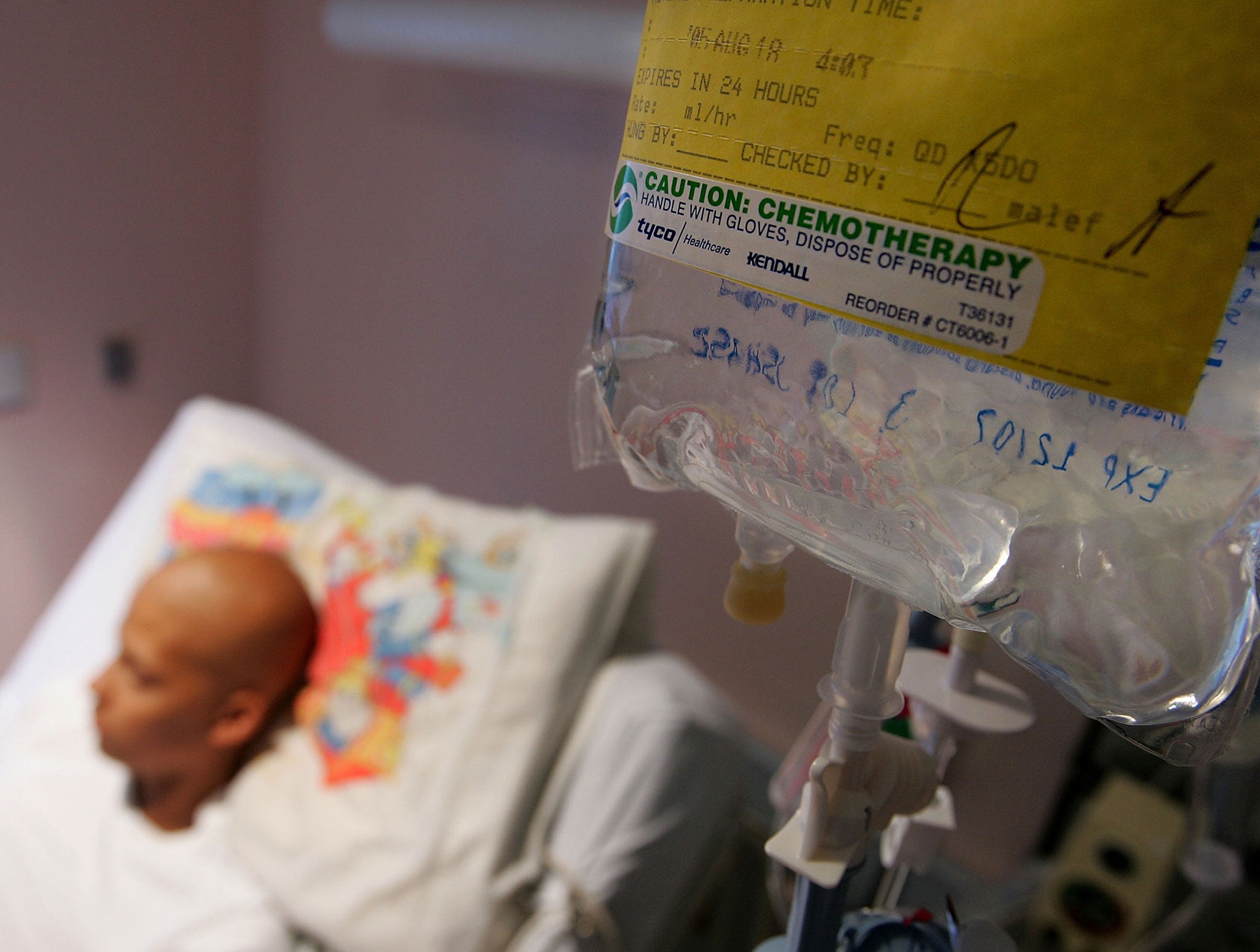The four phrases we need to stop using about cancer - and the one we should use more often
I'm not a 'victim' or a 'survivor', and I'm not embroiled in a 'brave battle' either

Having cancer is such a cliche. The media, it seems, has long run out of original or even accurate ways to describe the disease which makes reading about World Cancer Day such a chore. Here are four phrases I suggest we ban journalists from using in the context of cancer and one which, as someone who has lived with the disease, I consider acceptable (at a push).
'Brave battle' - Two emotive words in one handy phrase, but who are we kidding? There's nothing remotely heroic about coping with cancer. The whole thing sucks. From the symptoms to the diagnosis to the treatment and (hopefully) the recovery - it's a scary, depressing experience that is usually dealt with by the patient taking a pragmatic approach and hoping for the best.
At no point did I ever think I was in a 'battle' against cancer or that I was being 'brave'. About the best I could manage was 'cheerful' and that was only for the sake of my partner and children. I'm not even sure I managed it then.
'Survivor' - Fortunately for me, my experience of cancer has ended happily (for now). Perhaps the fact that I didn't have to undergo long spells of chemotherapy is the reason that I don't feel like a 'survivor'.
Despite acknowledging the grim situation I found myself in, I never thought about death being the end result. Perhaps due to the swift diagnosis of my renal cancer and the prompt, effective operation, I didn't have time to contemplate my fate. I get some see it as a badge of honour to be a 'cancer survivor' - and I accept that there are those that have been through genuinely harrowing ordeals - but to me it is a phrase born out of lazy journalism rather than one reflective of true life experience.
'Victim' - In the same way that I have never seen myself as a survivor, which is why I struggle to identify with those Bupa TV ads, I also don't recognise myself as a cancer 'victim'.
Cancer isn't malicious. I haven't been singled out by the disease for special treatment. It didn't beat me up down a dark alley. It is one of those things that happens in life. It certainly made me unhappy and I can justifiably feel a little unlucky but to call me a 'victim' is, I feel, overstating it a bit.
Maybe if I wasn't a middle aged man who's led a relatively happy and contented life, I would have a right to feel a bit more 'victimised'.
'Killer disease' - Cancer is a disease and, yes, it does kill people but given the strides we have made in its treatment in recent years, as demonstrated by reports out today, is there not a case to change the narrative around it? It would be beyond foolish to ever get complacent about the dangers posed by the disease, for sure, but the media's portrayal of a cancer diagnosis as the 'worst thing' that could ever happen to a person is the reason most people regard it as the 'worst thing ever' when it happens to them.
Cancers come in many different forms; some are more aggressive than others and every case is different. Positivity is born out of hope and yet it is very difficult to ever be optimistic about living with a disease that has such a devastating reputation. Accurate, non-sensationalist reporting of cancer is the only way we can help to remove this 'fear factor' and give people a more realistic outlook.
'On a journey' - Unlike the metaphors linked to 'fighting' cancer, those that refer to being on some kind of journey are just as cliched but somehow resonate far more with people like me.
There is no doubt from the moment the CT scan identified a cloudy area over my right kidney to the time I was given the all clear some months later, my life had changed and there was a definite sense of being 'on a journey'.
Part of this is that you go through different emotional stages during the treatment process, you are very up and down in the way you see things. I watched my weight drop dramatically. I was unable to walk for a time. These are not everyday events.
At the recovery stage, there is a sense of relief to have got through it and your outlook changes. You start to appreciate things you previously took for granted: having an appetite, laughing with friends, the unconditional love of your family.
I was never in a 'battle' against cancer - but it was certainly an experience I'll remember for the rest of my life.
Join our commenting forum
Join thought-provoking conversations, follow other Independent readers and see their replies
Comments
Bookmark popover
Removed from bookmarks